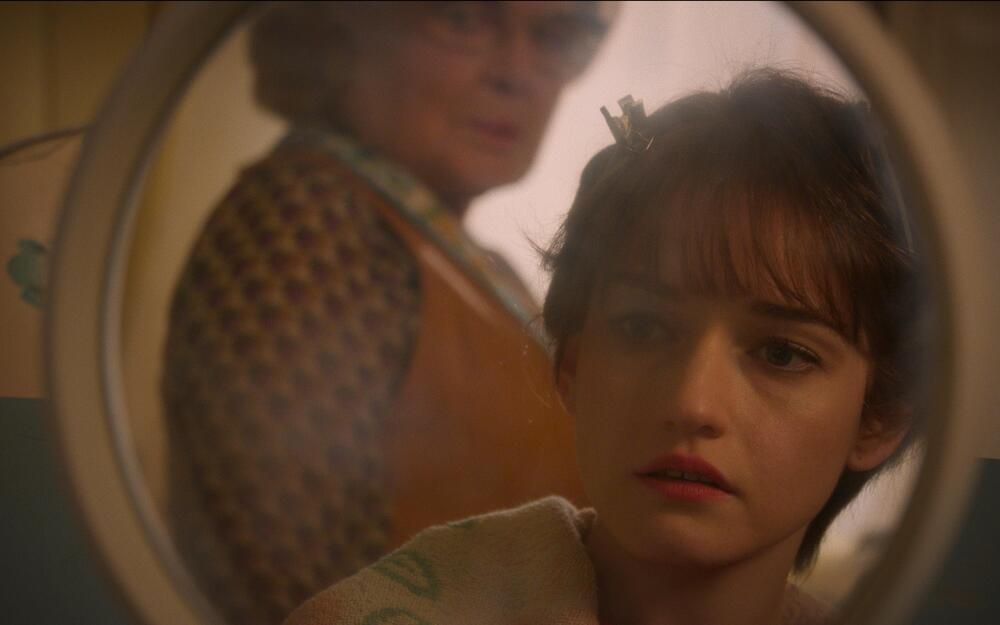Apartment 7A

Dianne Wiest and Julia Garner star in APARTMENT 7A. (Photo: Paramount+)
Feeling more like an IP extension than a legitimate narrative necessity, Apartment 7A certainly does nothing to tarnish the legacy of Rosemary’s Baby, but it does nothing to enhance it, either.
The 1968 horror masterpiece — in which a young Mia Farrow was pregnant with the antichrist — uses relatable insecurities, paranoia, and carefully constructed twists to escalate its simmering tension into visceral fear and dread.
This belated prequel, also inspired by Ira Levin’s novel, is mildly unsettling by comparison. Exploring some of the same themes of parenthood, trust, and the occult through a contemporary feminist lens, it fails to replicate the formula of the original film, relying more on cheap frights and genre tropes.
Set in 1965, backing up the original chronology by two years, the story follows Terry (Julia Garner), a dancer from Nebraska who cracks her ankle during her Broadway debut. The accident also shatters her confidence, although she remains determined if overwhelmed to make her dream a reality in New York.
She catches a lucky break when cheery senior Minnie Castevet (Dianne Wiest) and her husband, Roman (Kevin McNally), offer Terry a room rent-free in an upscale high-rise. Having a prominent stage director (Jim Sturgess) as a neighbor is a bonus.
“Moving into my own place feels like a first step,” she explains to a supportive friend (Marli Siu). “This is meant to be.”
While trying to get her career back on track, Terry begins experiencing nightmares and hallucinations. By the time she acts on her suspicions, it’s too late to stop her downward spiral triggered by the sinister secrets among the building and its inhabitants.
As directed by Natalie Erika James (Relic), the film stylishly captures its period setting through Terry’s eyes, as a naïve and innocent outsider coping with rampant misogyny and cutthroat power dynamics.
The screenplay crafts a character-driven thriller in which the characters aren’t sufficiently developed beyond their quirks and traumas. However, Garner (The Assistant) finds empathy in Terry’s strength and vulnerability.
There are a few clever exchanges, such as a chance meeting with an obstetrician at a party that turns out to be hardly accidental. “Take my card,” he deadpans.
Apartment 7A constructs a creepy atmosphere and some effective chills as the stakes increase. However, with regard to the broader mythology, it feels rooted more in curiosity and nostalgia than terror.
Rated R, 104 minutes.